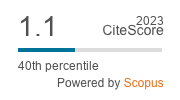Malaysian Journal of Mathematical Sciences, July 2008, Vol. 2(S)
Special Edition - National Conference on Mathematical Biology 2006
Prediction of $\beta$-Turns Using Global Adaptive Techniques from Multiple Alignments in Neural Network
Zarita Zainuddin, Chan Siow Cheng and Lye Weng Kit
Corresponding Email: [email protected]
Received date: -
Accepted date: -
Abstract:
A neural network-based method has been developed for the prediction of $\beta$-turns in proteins by using multiple sequence alignment. A feed-forward network with a single hidden layer is used where the sequence structure network is trained with multiple sequence alignment in the form of position-specific scoring matrices (PSSM). This paper concentrates on global adaptive techniques: Conjugate Gradient methods (Fletcher Reeves, Polak Ribiere and Powell Beale), Preconditioned Conjugate Gradient methods (Preconditioned Fletcher Reeves, Preconditioned Polak Ribiere and Preconditioned Powell Beale) and Levenberg Marquardt method in the training of multilayer perceptrons (MLP) neural network. The behavior of these training methods in the present study is reported. The Levenberg Marquardt method had been proved to be the most effective when tested and compared to other methods. It only takes 11 iterations to converge and yields overall performance, $Q_{total} = 96.67%$. Then Preconditioned Fletcher Reeves, Preconditioned Polak Ribiere and Preconditioned Powell Beale methods yield the same result of total $Q_{total}$ which is 93.33% with 333, 404 and 354 epochs accordingly. Lastly, Fletcher Reeves method yields the overall prediction accuracy of 93.33% after 689 epochs. On the other hand, Polak Ribiere and Powell Beale methods yield the same result of total $Q_{total}$ which is 90% with 531 and 468 iterations respectively.
Keywords: $\beta$-turns, neural network, prediction, secondary structure, multiple alignment protein









